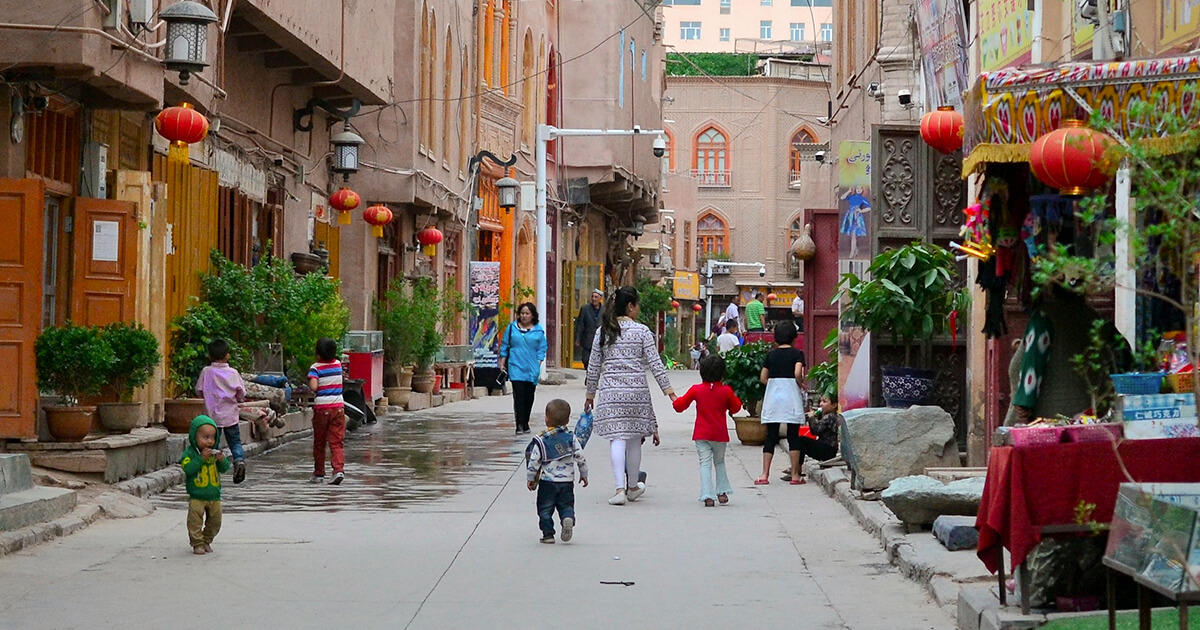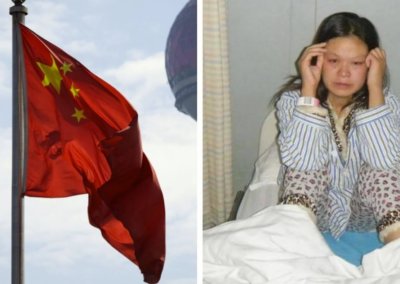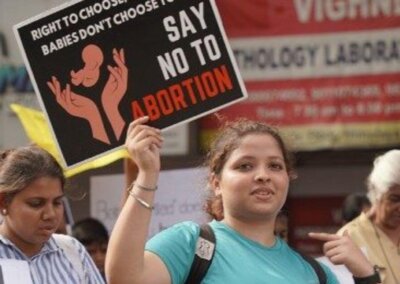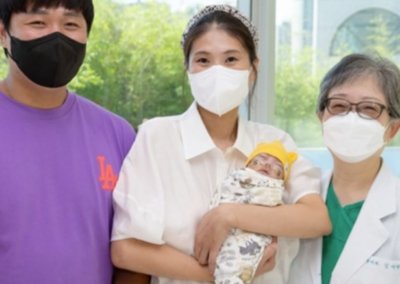Further details have emerged about the Chinese Government forcing women into unwanted abortions and surgical sterilisations in an attempt to limit the Uighur minority population.
Last month, an investigative report highlighted the brutal treatment of women and unborn babies through the eyewitness accounts of those affected.
It was released alongside damning new research by German researcher Dr Adrian Zenz, which argued the severe human rights abuses in Xinjiang met the United Nation’s criteria for genocide.
Now, a number of women have shared their heartbreaking stories with the Mail on Sunday about the abortions they have been forced into.
Sumayya: Forced to have eight abortions
Sumayya’s (a pseudonym) story is perhaps the most harrowing story of those disclosed.
Initially, she was relatively protected from strict birth control measures and forced abortions, as her husband was the only son of a senior local party official.
But, he lost power soon after the birth of Sumayya’s third child.
Sumayya has since been forced to have eight abortions.
“I would cry each time,” she said.
“Usually the nurses would take it away, saying if it was a boy or a girl. One time when the baby came out, it was obviously a boy and I could hold his little hand. I slept with him all night, crying beside him.”
After becoming pregnant again in 2016, medics said her body was so damaged by the previous forced abortions that she must spend weeks in hospital preparing for another termination.
Instead, she decided to flee. Her husband was subsequently arrested, while other relatives cut off contact, scared of all the surveillance.
Desperate to find her daughter back home, Sumayya traced her through social media with the help of a neighbour.
Aware they are being monitored, Sumayya and her 17-year-old daughter sometimes just sit there silently weeping together.
Sumayya said: “My daughter texts me to say that she is losing all hope in life. I am so worried about her I cannot sleep more than a couple of hours. I tell her to focus on her studies but she responds aggressively that she is done with hope.
“How is this fair? Why are we treated worse than animals just because we are Uighurs?”
Amina Mamtimin: ‘All I can do is hope we will one day meet again’
When Amina Mamtimin became pregnant with her fifth child four years ago, she knew she had to leave her country or risk losing her baby to a forced abortion.
“I was very happy to be having a baby but also so scared,” she said.
“[Women] are forced to have abortions and then stopped from having more kids. It was happening to almost everyone in my neighbourhood.”
As Amina had already given birth to four children, two more than is currently permitted by China’s two-child limit, she and her family decided to flee from China.
Amina’s third and fourth child had been registered as belonging to her sister, but the family knew they couldn’t dupe Communist Party officials by doing the same with their fifth child.
The family applied for passports, but only Amina and her youngest daughter were successful.
Amina agreed with her husband, Kurbanjan, that she must go first to save their fast-growing child in her womb.
The plan was for the rest of the family to follow.
“But they never made it,” Amina revealed.
Her husband was jailed for 15 years, disappearing into China’s sinister network of ‘re-education centres’ and prisons. She doesn’t know the whereabouts of her other three children, aged between nine and 12.
Now living in Turkey with her daughter and new son, Abdullah, she said: “All I can do is hope we will one day meet again – but for now I feel barely alive and can’t feel any happiness.”
Far from unique
Tragically, stories like Amina’s are far from unique. Amina was one of about 25 Uighur women who spoke to the Mail on Sunday in Istanbul, Turkey.
One woman revealed how, like Amina, she had fled China in a panic during her pregnancy.
Unlike Amina, she managed to escape with one of her children and her husband.
However, when he returned to China after ten days to collect their other children – he was detained.
“I’ve never heard from him again,” the woman explained.
Before the end of 2018, she was scrolling through news feeds on her phone in Istanbul when she spotted her daughter singing in a video that had been filmed in a state-run orphanage called Angel’s Garden.
Zumret Abdullah: ‘They just threw the foetus in a plastic bag like it was trash’
Zumret Abdullah estimated she must have seen about 90 forced abortions in three years whilst working as a nurse on a hospital maternity ward at Urumqi Medical University.
She disclosed how expectant mothers were made to swallow medical abortion pills or, in cases where the mother was more than five months pregnant, had to have fatal injections into the heads of their unborn child.
“I witnessed a lot of tragedies there,” the young healthcare professional said.
“The husbands were not allowed inside. They take in the women, who are always crying. Afterwards, they just threw the foetus in a plastic bag like it was trash. One mother begged to die after her seven-month-old baby was killed. It took three more days to give birth. It was a proper baby. She asked if they could bury it but the doctors would not give it to the family.
“These women suffered so much. Doctors would claim the women wanted abortions but then you would hear them chatting in the office and learn the truth.”
Unable to bear the trauma of forced abortions, Zumret eventually quit her job.
“I was having mental problems, seeing babies in my dreams. I still have nightmares,” she said.
All the victims were Uighur, despite many of China’s Han population moving to Urumqi, the regional capital.
“It never happened to a [Han] Chinese person once. This was just to control the Uighur population,” Zumret said.
Rahima Muhammad: Attempting to make a difference
Rahima Muhammad spent six years working in a clinic for women that had up to 100 abortion appointments each day.
Due to the large number of women suffering health problems from brutal birth control methods and the number of women attempting to give birth at home alone, Rahima opened an illegal healthcare clinic hidden behind a pharmacy to help women trying to save their babies.
“I could not make a difference at the hospital but after I opened the clinic, more and more ladies came so I could not treat them all,” she said.
One of Rahima’s patients was a woman about seven months pregnant who pleaded for her baby to be induced prematurely since she was being chased by Chinese authorities to have an abortion.
Eventually, Rahima agreed, but the baby’s lungs were under-developed and it had breathing problems.
“I tried to persuade her to go to the hospital but she refused, so in the end I took the baby to the hospital but it died. I have never forgotten the baby’s face. This is why I cannot accept that we were forced into this situation.”
Despite her efforts, Rahima said she still felt guilty she could not do more.
Like many other women, she fled the country for Turkey after giving birth to her fourth baby. This also meant closing the clinic which had offered hope to a number of Uighur women in Xinjiang.
Roshangul Tashmuhammad: Women routinely checked
Roshangul Tashmuhammad explained how Government officials in China routinely check women’s menstrual cycles to ensure they are not pregnant.
When police discovered Roshangul’s sister-in-law was expecting a baby for the second time, she was visited by police who said they must take her to the hospital for checks.
At the hospital, medical professionals claimed the baby had died in the womb so they forcibly aborted it.
Two years later, the same sister-in-law hid from the authorities during another pregnancy with the aim of giving birth.
However, this led to Roshangul’s brother being jailed for four years.
“They said his baby should not be alive,” Roshangul said.
Kalbinur Kamal: Forcibly sterilised
Kalbinur Kamal, a teacher among those forcibly sterilised said: “I had no option but to sign the [sterilisation authorisation] forms. The Chinese doctor said you must accept because if not we will do it by force anyway, so better to do it willingly.”
Huge bribes
Several people told the Mail on Sunday that their families had paid huge bribes to protect their babies, while others hid in homes or moved constantly to evade the authorities.
One doctor told me she paid about a year’s salary to register her third child. During a decade working as a paediatrician in Urumqi, she often faked papers saying infants could not hear or speak since this allowed families to have another child.
Painful legacy of one and two-child policies
Earlier this year, a Chinese mother, who was given a forced abortion after falling pregnant with her third child, was granted refugee status in New Zealand.
The family’s story offers a glimpse into how China’s former one-child policy and current two-child policy continue to leave a painful legacy.
Although China’s brutal one-child policy ended in 2015, it was replaced by a similarly draconian two-child policy and the devastating consequences of forced abortions, sterilizations, abandoned newborns, and Government abductions are still ongoing.
Chinese-born filmmakers Nanfu Wang and Jialing Zhang exposed some of the consequences of the policy by retelling some of the stories of those who lived through it.
In their One Child Nation documentary, which can be viewed on Amazon Prime Video, an 84-year-old midwife revealed she was unsure how many babies she had delivered, but had performed a total of between 50,000 to 60,000 sterilizations and abortions.
“I counted this out of guilt, because I aborted and killed babies,” the midwife, Huaru Yuan, continues. “Many I induced alive and killed. My hands trembled doing it.”
One mother in China told the BBC that she would have liked a second child but was also forced to have an abortion.
She said: “You either go willingly or the government comes for you.”
Another mother told the BBC that before the one-child policy was relaxed, she was forced to have an abortion. Speaking of the ordeal she said: “My baby didn’t die immediately… it kept on struggling inside me.
“It broke my heart, the next day it was born still alive… it cried. The doctor said don’t look at it, you’ll have nightmares.”












